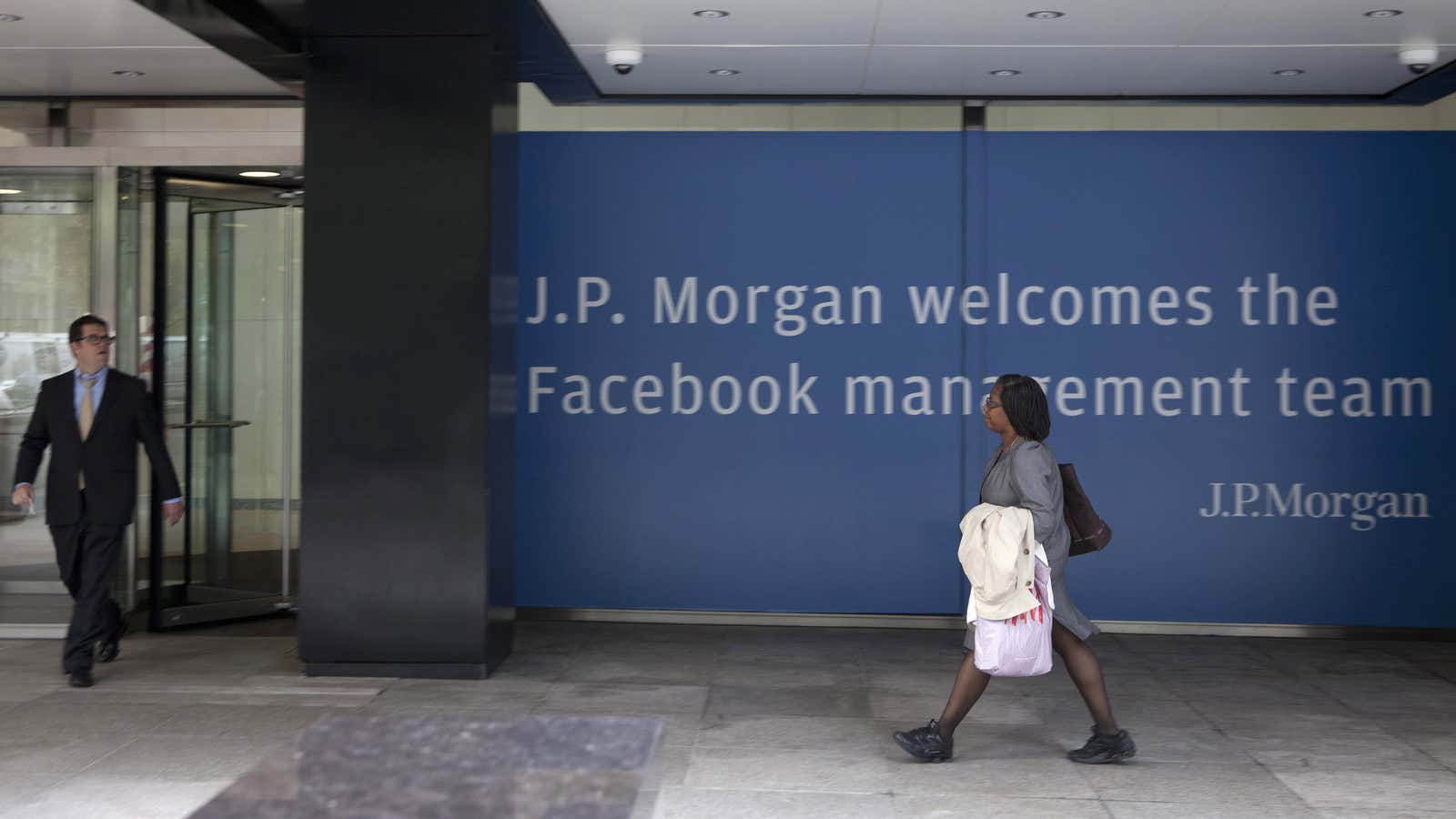Twitter’s confidential regulatory filing yesterday for a public offering is just the latest effort by Silicon Valley to shift the rules for dealing with investors, the stock markets, and the whole IPO process. And even more radical attempts by internet firms and their investors to grab power from Wall Street are likely coming.
Internet investors and entrepreneurs are frustrated with the current system, no matter the enormous wealth it ultimately unlocks for many of them. (One Wired article last year was titled “For High Tech Companies, Going Public Sucks.”) There’s also something of a tribal feud going on between two different, codependent clans—the East Coast bankers and the West Coast entrepreneurs.
Twitter is trying to shorten the process and minimize the window for something going wrong, one person briefed on the situation tells Quartz. Google in 2004 famously thumbed its nose at Wall Street (paywall), using a so-called Dutch auction system to price and allocate shares in its IPO. That effort, and some botched communications with institutional investors, arguably backfired: Google’s shares listed at well below the expected price. Facebook kept a tighter grip on key aspects of its 2012 IPO, deferring to bankers much less than companies traditionally do, according to some accounts (paywall) of the messy offering.
But what if Silicon Valley’s most powerful—and tight-knit—investors and executives decided they really wanted to shake up the process for taking companies public and enabling the trading of shares in them? What if they ditched Wall Street entirely?
Eric Ries, a Silicon Valley entrepreneur and author of the The Lean Startup, has been publicly making the case for such a bold move. “I propose that we create a Long-Term Stock Exchange (LTSE). In addition to quarterly reports on profits and margins, companies on the LTSE would report using innovation accounting on their internal entrepreneurship efforts,” he wrote in the 2011 book. Ries continued:
“Like Intuit, they would report on the revenue they were generating from products that did not exist a few years earlier. Executive compensation in LTSE companies would be tied to the company’s long-term performance. Trading on the LTSE would have much higher transaction costs and fees to minimize day trading and massive price swings. In exchange, LTSE companies would be allowed to structure their corporate governance to facilitate greater freedom for management to pursue long-term investments.
In addition to support for long-term thinking, the transparency of the LTSE will provide valuable data about how to nurture innovation in the real world. Something like the LTSE would accelerate the creation of the next generation of great companies, built from the ground up for continuous innovation.”
Ries’s view, shared by other important internet investors and executives, is that markets are so dominated by high-frequency trading, short-selling, and quarterly investor pressures that they actively hinder the growth of the businesses whose shares are being traded. (There’s a separate, related argument to be made that individual investors get the short end of the stick as well.) Ries explained to PandoDaily’s Hamish McKenzie last year: “If you truly want to create a long-term company that’s going to survive through generations of ownership, the current system doesn’t support that.”
Ries describes the problem with public markets in software engineering terms: “It’s like a bug in the system.” And naturally, Silicon Valley’s heavyweights—emboldened by their success at overturning traditional models, disrupting businesses and removing inefficiencies—like the idea of disrupting Wall Street too. If you can build self-driving cars, why not a better stock market?
Ries said last year that creating an alternative market was legally feasible, but would take at least 10 years and require enough companies and investors to buy in. Rules for the market could fulfill regulatory requirements, and then add an additional layer of rules such as minimum share-holding periods on top of that, he said.
Twitter itself will have to go public on an existing exchange like the NYSE or Nasdaq. But if its IPO suffers major mishaps or frustrations, it could well accelerate the nascent effort in Silicon Valley to really ditch Wall Street.
